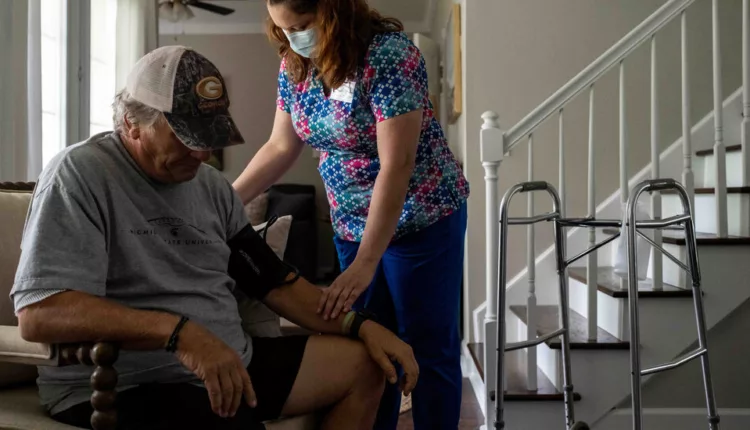
Essential Guide: 10 Key Facts about Home Care Services
TL/DR –
The article discusses the difficulties faced by older Americans who desire to live at home but need assistance, highlighting the shortage of home health aides in many parts of the country and the related costs. It provides a guide to determining the type of care needed, how to find help (whether through an agency or personal recommendations), and the possible avenues for covering costs such as Medicare, Medicaid, or private insurance. The piece also covers other considerations such as assessing home care agencies, the cost of hiring aides, and how to address problems with an agency or aide, as well as the availability of respite care for family caregivers.
Finding and Affording Home Care for Older Adults
Many older Americans strive to stay at home for as long as possible, but hiring home health aides is often a challenging and costly process. This guide will explain how to identify the right home care services for your loved one’s needs.
Understanding Home Care Needs
After incidents such as a fall or surgery, an older person might need short-term at-home care from a nurse or therapist to aid in recovery. Medicare typically covers this type of care. However, many others require long-term assistance to stay safely at home, needing help with basic tasks such as getting out of bed, showering, cooking, or shopping. For this, a home health aide or personal care assistant is necessary.
Finding the Right Help
There are a variety of services available, from light housekeeping to hiring a private-duty nurse. Start by listing the type of help needed and the estimated number of hours required each day or week. To identify local services, consider using resources such as the community resource database provided by the Alzheimer’s Association and AARP, or AARP’s guide to finding a home health aide.
Getting Help through an Agency
While some home health agencies are Medicare-certified, not all are federally regulated or required to be licensed in every state. However, a reputable agency will provide pre-employment screenings and training for its workers. They can also provide replacements if an aide is unavailable. To select an agency, invite them for an in-home assessment and inquire about their employee vetting process, training, and references.
Word-of-Mouth Recommendations
Many families successfully find caregivers through trusted recommendations. Reach out to your community, post on private social media, or ask family and friends for suggestions. Churches, local charities, and community organizations may also have suggestions. The Family Caregiver Alliance provides a guide to help with background checks.
Understanding Medicare and Home Care
While Medicare doesn’t typically cover long-term care, it may pay for an aide as part of a patient’s care plan if a home nurse or therapist is also required. Agencies often decline to provide an aide due to Medicare’s lump-sum per-patient payment policy. If you believe an aide is necessary, discuss this with the doctor to include it in the care plan presented to the agency.
Sourcing Funds for Home Care
Medicaid often covers the cost of an aide as an alternative to nursing home care. Some private Medicare Advantage plans offer home care as a supplementary benefit, and long-term care insurance policies may cover some help. Veterans should check with Veterans Affairs about potential home care coverage. Depending on your location, the hourly rates charged by agencies vary widely.
Reporting Problems and Seeking Further Assistance
If you encounter problems with a home care agency, check with the government office overseeing it or file a complaint with your state health department. State or local government aging-focused agencies can provide further advice. The Eldercare Locator and the Alzheimer’s Association’s caregiving resources are also useful.
Considering Respite Care
Family caregivers should consider respite care for temporary relief. Depending on individual circumstances, insurance, local government, and community groups may cover the cost of an aide for a brief period.
—
Read More Health & Wellness News ; US News
